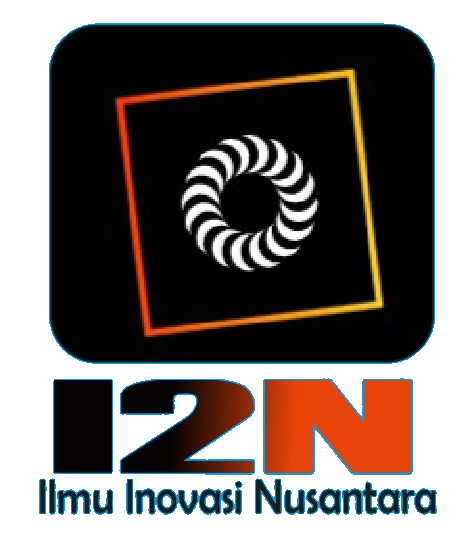Bridging Revolutionary Legacy and Contemporary Practice: Li Dazhao's Philosophy of Youth Education and Its Relevance for Cultivating New-Era Talent
DOI:
https://doi.org/10.58557/(ijeh).v5i4.379Keywords:
Holistic Personality Development, Li Dazhao, Marxist Education Theory, New Era Talent Cultivation, Social PracticeAbstract
The intellectual and moral cultivation of youth has become an urgent challenge in the context of rapid globalization, technological disruption, and cultural transformation. Contemporary education often struggles to balance theoretical knowledge, social responsibility, and holistic personality development, leading to fragmented growth among young learners. Against this backdrop, the pioneering contributions of Li Dazhao (1889–1927), one of the earliest disseminators of Marxism in China, offer valuable insights. His educational philosophy—developed through revolutionary praxis and philosophical synthesis—remains highly relevant for addressing the current dilemmas of youth education. This study aims to examine Li Dazhao's tripartite educational framework: theoretical arming, responsibility cultivation, and holistic personality development, and to explore its applicability in constructing a new paradigm of youth education for socialist modernization. Methodologically, the research employs a qualitative approach through historical analysis and textual interpretation of Li's writings, including My View on Marxism and related works, while also engaging with secondary scholarship on Marxist education and Chinese intellectual history. The findings highlight that Li Dazhao successfully integrated Marxist theory with traditional Chinese humanism and experiential pedagogy, thereby cultivating youth who were both ideologically committed and socially engaged. His emphasis on linking theory with practice, responsibility to the nation, and personality formation provides a systematic model for contemporary youth development. The implications of this study suggest that Li's framework can inform the design of modern ideological and political education, the promotion of civic responsibility, and the construction of personality education systems that respect individual diversity. Ultimately, his vision contributes to cultivating ethically grounded, socially responsible, and historically conscious youth capable of meeting the challenges of the new era
References
Chen, Y. (2021). Revisiting Marxist education in contemporary China: Values, challenges, and opportunities. Beijing: People’s Publishing House.
Deng, X. (2022). Li Dazhao's ideological and political education thought and its value of the times. Journal of Tangshan Normal University, 44(1), 12–15.
Dirlik, A. (1989). Revolution and history: Origins of Marxist historiography in China, 1919–1937. Berkeley: University of California Press.
Fairbank, J. K., & Goldman, M. (2006). China: A new history (2nd ed.). Cambridge, MA: Belknap Press of Harvard University Press.
Fu, S., Chai, Y., & Du, J. (2020). A brief analysis of Li Dazhao's youth education thoughts. Beijing Education (Higher Education), (2), 93–96.
Gao, J. (2013). Li Dazhao and the development of revolutionary education in China. Frontiers of Education in China, 8(2), 169–190. https://doi.org/10.3868/s110-002-013-0010-3
Gong, J. (2023). Journal of Tangshan Normal University, 45(2), 15–18.
Holm, P. (2020). Education, individualism, and collectivism in modern China. Asian Studies Review, 44(3), 401–418. https://doi.org/10.1080/10357823.2020.1751234
Hu, B., Yin, J., & Li, W. (2023). [Judul artikel dalam bahasa Mandarin]. Journal of North China University of Science and Technology (Social Sciences), 23(3), 109–112, 124.
Li, D. (2009). My view on Marxism (Original work published 1919). Beijing: People’s Publishing House.
Meisner, M. (1999). Mao’s China and after: A history of the People’s Republic (3rd ed.). New York: Free Press.
Pang, N. (2023). Research on the educational value of Li Dazhao's youth education thought in the new era and the practice of colleges and universities. Journal of North China University of Science and Technology (Social Sciences), 23(2), 107–111.
Ren, H., Liang, X., & Gao, L. (2024). Journal of North China University of Science and Technology (Social Sciences), 24(2), 116–120.
Xi, J. (2014). The governance of China. Beijing: Foreign Languages Press.
Xu, J. (2019). The Western Program and youth development in China. China Youth Research, 3(1), 55–62.
Zarrow, P. (2005). China in war and revolution, 1895–1949. London: Routledge.
Zhang, L. (2018). Li Dazhao’s educational philosophy and its historical significance. Journal of Modern Chinese History, 12(1), 1–15. https://doi.org/10.1080/17535654.2018.1436258
Zhou, W., & Guo, G. (2021). Li Dazhao’s youth education thought and its practical enlightenment. Journal of Zhoukou Normal University, 38(3), 143–147.
Zhou, W., & Guo, G. (2021). Li Dazhao's youth education thought and its practical enlightenment. Journal of Zhoukou Normal University, 38(3), 143–147.
Downloads
Published
How to Cite
Issue
Section
License
Copyright (c) 2025 Qing Zhang, Fuhai Xia

This work is licensed under a Creative Commons Attribution-ShareAlike 4.0 International License.














